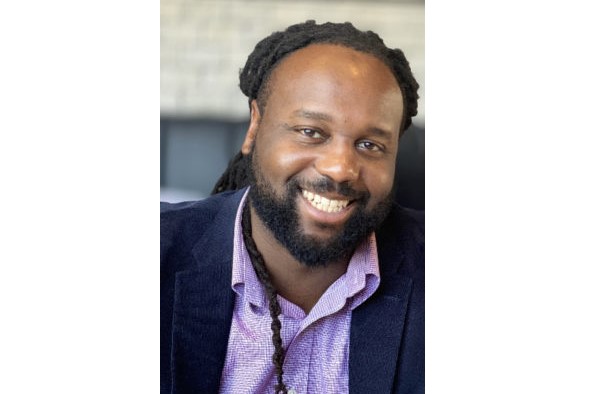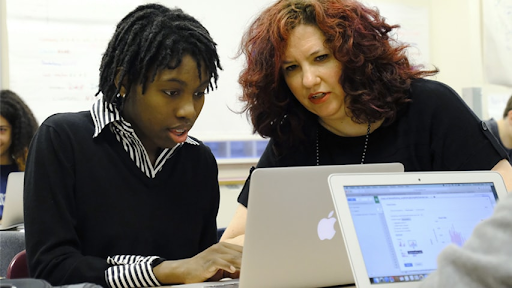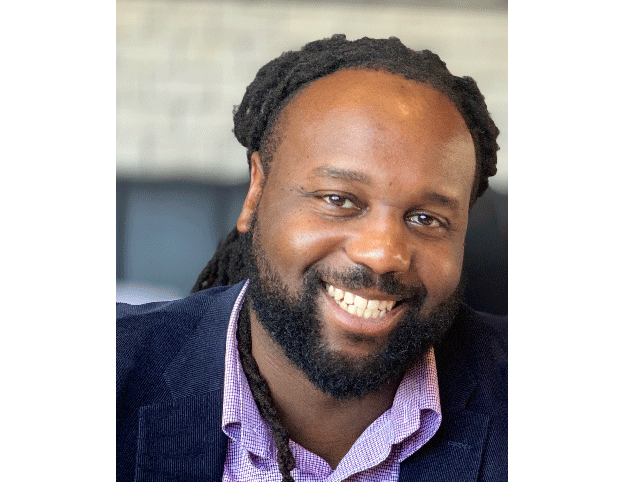Kashif Henderson, Executive Director of Neighborhood Alliance, has served as a teacher, administrator, and mentor. His many years of experience leading professional development opportunities has put equity, educational justice, and access at the forefront of his work. Alongside his partnership with Carnegie Mellon University’s School of Computer Science to expand CS courses, Kashif is a recipient of United Way of Southwestern Pennsylvania’s “Be There” award and State Representative Jake Wheatley’s Certificate of Appreciation, among many other accolades.
To honor Remake Learning’s 15th anniversary, Kashif looks back at his journey of inspiring and improving the lives of students all across the region.

Remake Learning combines two of my professional joys: seeing students reach that “ah-ha” moment and connecting with professionals and community members with a shared interest in improving the educational landscape. The perfect combination.
I was first introduced to Remake Learning as a district administrator in Pittsburgh Public Schools, where I had watched Remake support numerous teachers and principals in rethinking educational experiences.
I had been invited to participate in the CSforPGH working group, a collective focused on expanding computer science access for all students in Pittsburgh and Southwestern PA. I didn’t know what to expect, but I was humbled and excited to be included in the work.
Earlier that year, I collaborated with Carnegie Mellon University’s School of Computer Science to expand computer science access for high school students. We then partnered with a program called Microsoft Technology Education and Literacy in Schools (TEALS), which focuses on exposing students to computer science while building the classroom teacher’s capacity to eventually teach the course on their own.
I brought the partnership to CSforPGH because I knew I would reach a couple “ah-ha” moments myself in collaborating with the working group. I was able to share the work that was happening in this new program and learn from others about what they were doing to expand computer science access for our students. Again, a perfect combination.

It was during the working group meetings that we explored the major themes that challenged our individual beliefs and practices. Out of these brainstorming sessions emerged thoughtful discourse about equity, access, and belonging. My investment in CSforPGH has taken educational innovation even deeper and that has been the most impactful work I engaged in with Remake Learning.
When I think about who we are providing access to as an organization, a few prompts come to mind that I have examined with CSforPGH.
- Who is being included or not included?
- How do we ensure the work is inclusive?
- How are we designing activities and experiences that reflect the diverse populations of the region?
- How will we build bridges of success to the workforce?
- How do we hold ourselves accountable to the work of equity and access?
I believe that the educational community needs this discourse around equity and access to move us forward as a city.
One of the most rewarding experiences from participating in Remake Learning is being part of the groundwork to create change and access to computer science courses for all. I could not ask for anything more as an educator and nonprofit leader.
The working groups, networks, and events pushed our thinking, challenged us to learn more, and inspired us to create. The first 15 years laid the foundation and provided the evidence needed to demonstrate the power of our region when there is an intentional focus and design to challenge outdated norms, to help our community reach their “ah-ha” moments. I look forward to the next 15 years of breaking down barriers with Remake Learning.
